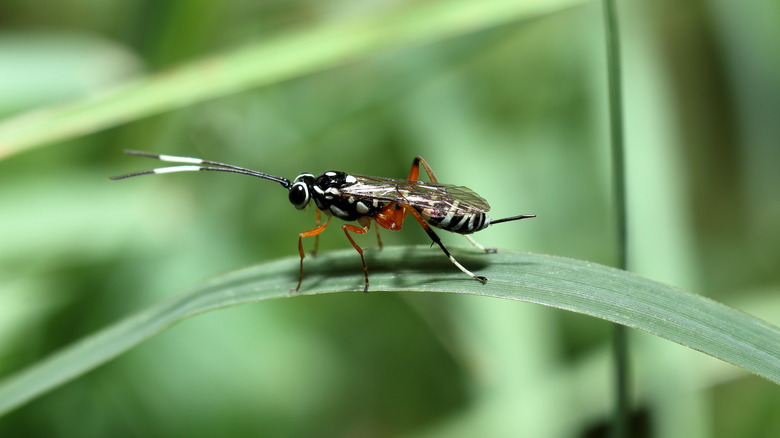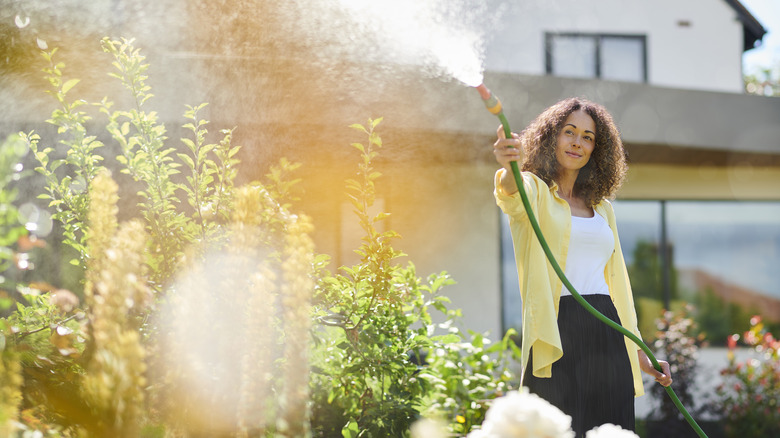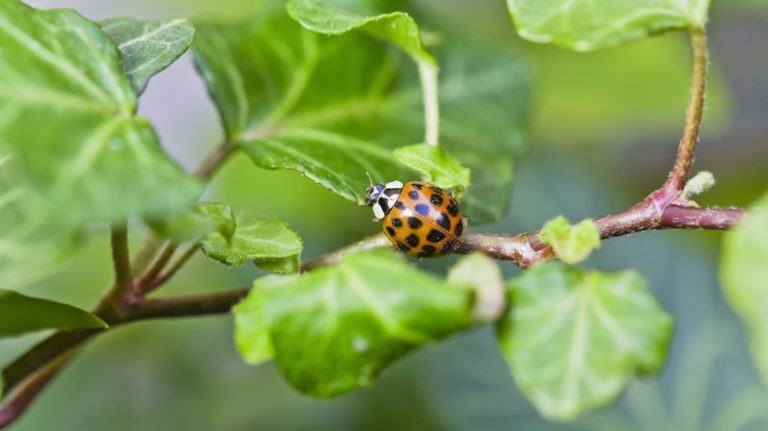Are you dealing with aphids on your geraniums? If so, you’re not alone. These pesky insects can quickly become a nightmare, sucking the life out of your precious plants. But fear not; there’s a natural and effective way to get rid of your aphid problem: introducing beneficial insects, such as lacewing larvae, ladybugs, and other predatory bugs like parasitic wasps — along with other insect-deterring methods. But first, it helps to understand exactly what it is about your geraniums that attracts aphids, as well as the signs of an aphid infection.
Geraniums, with their vibrant blooms and lush foliage, are like a magnet for aphids. These tiny pests are drawn to the sweet sap of geraniums. They love feasting on this nutrient-rich sap, which is plentiful in these plants, especially during the growing season. To assess the sap, they normally pierce the leaf area, usually around the stem.
If you’re worried your geraniums might have aphids, there are some telltale signs to watch for. First, check for clusters of small, pear-shaped bugs in shades of green, black, or brown. They usually hang out on the undersides and tips of leaves. Another giveaway is the appearance of the leaves themselves. Aphids can cause leaves to curl, yellow, or become distorted. Also, look for a sticky substance called honeydew, a sugary liquid excreted by aphids. This can often lead to sooty mold, a black, powdery fungus that grows on the honeydew.
Using beneficial insects to eliminate aphids

Lacewing larvae, often nicknamed “aphid lions,” are incredibly effective at keeping aphid populations on geraniums in check. A single lacewing larva can gobble up over 200 aphids in just a week! As for ladybugs (or, as scientists call them, lady beetles), these little beetles are not just pretty to look at; they’re aphid-eating machines. Each adult ladybug can devour up to 50 aphids a day. But here’s a pro tip: The timing when using the ladybugs in your garden is crucial. Gardeners suggest doing this in the early evening. If you release them when it’s too hot or sunny, they’ll just fly off in search of shade. Here’s something else to remember: Both lacewing larvae and ladybugs need aphids aplenty to stick around. So, check your plants. If you see just a few aphids, maybe hold off on releasing these predators. But if you start noticing more aphids, that’s your cue.
If keeping an eye out for the right aphid population level is a bit much, parasitic wasps can also help protect your geraniums. Unlike predators that eat aphids, these wasps use them as hosts for their young. As with other predatory methods, you’ll have to introduce them into your garden and let nature take its course. However, be aware that while these wasps are not aggressive towards humans and are unlikely to sting, it’s wise to introduce them carefully. Lastly, it’s crucial to remember that biological controls need time and patience to work, so don’t expect immediate results.
Important things to keep in mind

If these predatory insects don’t curb your aphid issue, another option is diatomaceous earth, a natural powder that’s effective against aphids, but can unfortunately harm beneficial insects, too. Use this powder or any other chemical herbicide as a last resort. Don’t forget to follow the instructions and keep in mind that, when using beneficial insects, you’ll need to avoid both natural and chemical pesticides entirely. These pesticides might seem like a quick fix, but they don’t discriminate between pests and helpers, so you could end up killing the very creatures you need for aphid control. They will further disrupt the ecological balance in your garden. Moreover, some aphids can develop resistance to pesticides, making future infestations even harder to manage.
In addition to using repellents, it’s also important to consider your care methods. Overwatering your geraniums can make them more vulnerable to aphids. Ensure they get enough sunlight and don’t sit in waterlogged soil. After dealing with an aphid infestation, rinse off any remaining aphids and honeydew, and regularly inspect for new aphid activity. Maintain consistent, appropriate care to keep your geraniums robust and less inviting to pests. Be sure to provide balanced nutrition, but avoid high-nitrogen fertilizers, as they promote tender growth, which aphids love.


